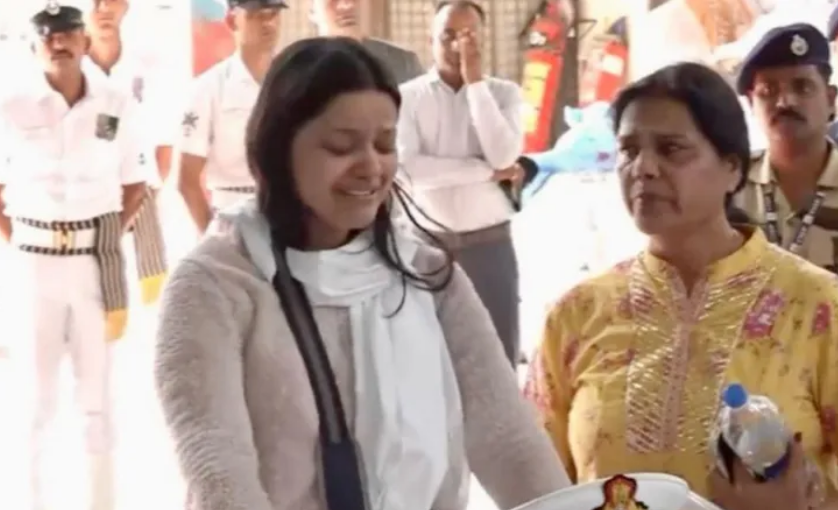A photograph of Himanshi Narwal, sitting in shock beside the body of her slain husband, became a heartbreaking symbol of the militant attack that killed 26 civilians in Indian-administered Kashmir on April 22. But just days after she was held up as the face of national mourning, Narwal has found herself at the center of an online hate campaign.
Narwal, whose husband Vinay Narwal — a 26-year-old naval officer — was killed while the couple were on their honeymoon, spoke publicly for the first time at a blood donation drive held in her husband’s memory on what would have been his 27th birthday. Her message was one of unity and peace.
“People going against Muslims or Kashmiris – we don’t want this. We want peace and only peace,” she said. While she called for justice against the perpetrators, her refusal to generalize blame drew fierce backlash online.
Survivors of the attack said that Hindu men were targeted after militants checked their religious identity. The incident has led to harassment of Kashmiris in various parts of India, particularly by right-wing groups.
Narwal’s statement, seen by some as too conciliatory, prompted abusive comments from many who had initially expressed sympathy for her. Online trolls accused her of dishonouring her husband’s memory, circulated unverified claims about her university friendships, and even questioned her right to speak, citing the short duration of her marriage.
India’s National Commission for Women (NCW) condemned the abuse, calling it “reprehensible and unfortunate.” Chairperson Vijaya Rahatkar wrote on social media that disagreement must remain within the bounds of decency and the constitution.
Journalist Namita Bhandare said Narwal was targeted for appealing for peace instead of demanding revenge. “It’s the same old story — women are always easy targets,” Bhandare said, noting that female victims of abuse are often subject to threats and sexualized insults.
Narwal is not alone. Arathi R Menon, whose father was killed in the same attack, also faced trolling after she calmly recounted her experience and praised two Kashmiri men for helping her.
Despite the abuse, Narwal has received support online. Writer Gurmehar Kaur, herself a former target of right-wing trolling, praised Narwal’s strength and composure in the face of tragedy.
Opposition politicians have urged government intervention, but no Indian minister has addressed the issue, and no formal police complaint has been filed.
As the online frenzy continues, many fear the cycle of vilification will repeat. “It will run its course,” Bhandare said, “and then the people will move on to their next target.”


